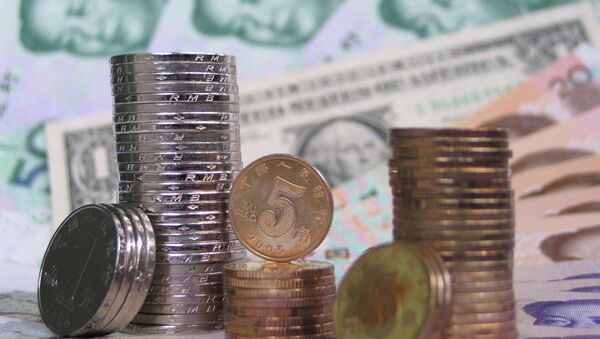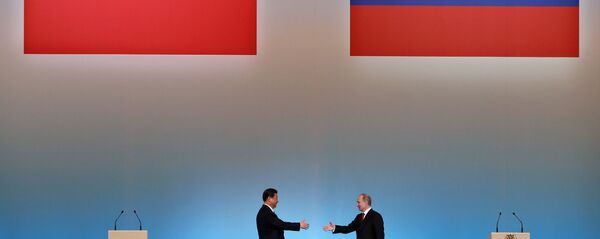In October 2014, Russia and China signed a $25 billion foreign currency swap, expected to last three years. The move helped Moscow to overcome a difficult economic period following the plunge of Russia's national currency. It also meant that Russia and China do not have to use US dollars in bilateral trade.
Although both countries use national currencies for 7 percent of their mutual trade operations, they are likely to proactively promote it more in the future. The trend could spell trouble for the dollar as the dominant global currency in the long run.
Following a deterioration of Russia's relations with the West over the Ukrainian conflict, Moscow increased economic cooperation within BRICS, the Asia-Pacific region and Latin America. Russia and China are working to increase the frequency of mutual payments in rubles and yuan.
The decision to switch to national currencies in mutual trade was first announced in 2010 by then Russian Prime Minister Vladimir Putin and former Chinese Premier Wen Jiabao. After the announcement, the central banks of both countries struck a deal allowing bilateral trade in the ruble and the yuan, as well as in freely convertible currency.
There might be a solution to this. Chinese rating company Dagong Global Credit Rating, Russian Agency RusRating and American Egan-Jones Ratings partnered to create Universal Credit Rating Group (UCRG).
Hong Kong-based UCRG is designed to work independently of such giants as S&P, Moody's and Fitch to provide an unbiased assessment unlike the "Big Three" firms, which some say are often used to serve the US interests.
"It can be said that Russia's and China's defiance to the existing world of ratings is a matter of colossal importance," Sugiura said.
Anti-Russian sanctions have resulted in Russia and China trying to gradually destroy America's financial hegemony. "Some experts say that restrictive measures imposed on Moscow tightened a rope on Washington's neck," the economist pointed out.





